Prev Post
Zhejiang Lab's Fully Programmable Photonic Quantum Processor Successfully Applied in Drug Design

What are the latest developments of new computing approaches?
What are the cutting-edge technologies that will enable intelligent computing systems?
How to use intelligent approaches to assist computing system design, scheduling and theoretical research?
How can we facilitate the widespread adoption of intelligent computing software and hardware platforms in scientific research, industry innovation and social development?
The 3rd Innovation Forum on Intelligent Computing, co-sponsored by Zhejiang Lab and Science/AAAS, was held successfully on October 19-20, 2023. Experts and academicians at home and abroad attending the forum include: Dr. Manuela Veloso, Member of National Academy of Engineering, USA and Head of JP Morgan Chase AI Research, Dr. ZHANG Tongyi, Member of the Chinese Academy of Sciences and Chief Scientist of Computational Materials at Zhejiang Lab, Prof. SHI Luping, Director of Center for Brain Inspired Computing Research (CBICR) at Tsinghua University, and Prof. Björn W. Schuller at Imperial College London, UK. They delivered wonderful keynote talks and shared the world's latest research progress in intelligent computing.
"Computing is assuming an increasingly pivotal role, bearing a resemblance to the transformative impact once only attributed to electricity. Technology could help free people up to do more and better, spark fantastic ideas, and drive innovation." WANG Jian, President of Zhejiang Lab and Member of the Chinese Academy of Engineering, said in the opening remarks: "This is an exciting era, and also an era of 'out of box thinking', where you can take your ideas beyond the confines of computers. Today's forum at Zhejiang Lab allows us to discuss computing face to face and explore the potential for driving innovation with computing. This is a very important moment for Zhejiang Lab and the industry."
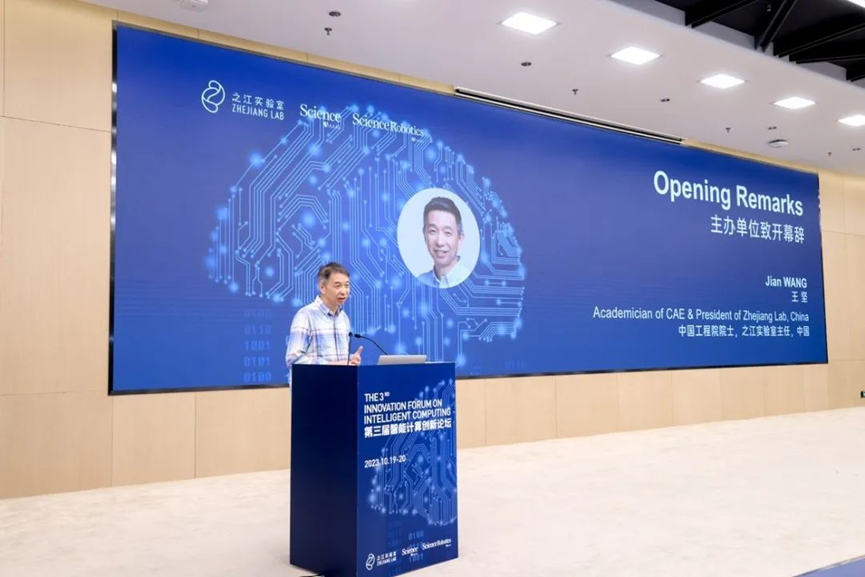
Manuela Veloso, the first keynote speaker for the forum, is an expert in AI, symbiotic human-robot autonomy, continuous learning systems, and AI in finance. In her talk, Manuela Veloso presented practical examples such as robot soccer match, AI-assisted financial trading decision making, data standardization, and AI gererating presentation slides. Through these vivid examples, she exemplified the capabilities of AI, the innovative modalities through which human-AI interactions occur, and how they mutually leverage their strengths in knowledge acquisition and learning processes. "As time goes on, AI continues to learn and perform more tasks, and humans engage in more complex tasks, ultimately achieving a society where humans can coexist with machines peacefully," Manuela Veloso said.
At present, we are living in a highly digital world that relies on the computer system based on Von Neumann Architecture. As AI evolves, this computer system faces escalating challenges. Under Von Neumann Architecture, the current artificial intelligence is only good at solving deterministic problems grounded on sufficient data and integrated static knowledge. If these conditions are not met, problems will occur in the existing computer system. SHI Luping pointed out that brain-inspired computing (BIC) is considered one of the most promising new technologies in the post-Moore era and will provide us an approach to artificial general intelligence (AGI). In his talk, SHI Luping explained the status quo of global brain-inspired computing research and problems it is facing. He pointed out that integrating computing- and neuroscience-driven approaches is the best way to develop BIC, which requires a synergistic development of theory, chips, software, systems and applications.
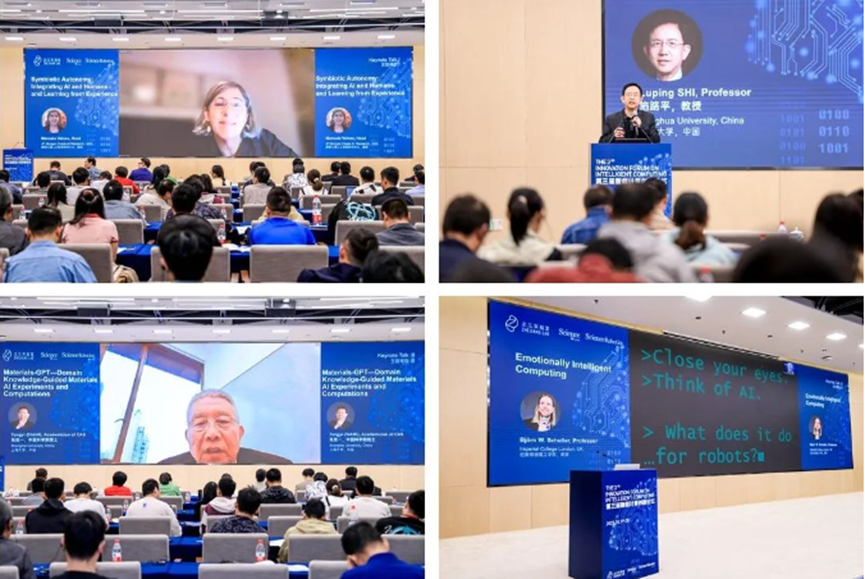
As the concept of "AI for Science" is in the ascendant, AI's potential to empower scientific research has also drawn global attention. In his keynote talk, Academician ZHANG Tongyi presented the concepts of materials informatics and materials GPT, and took the oxidation behavior of ferritic-martensitic steel in supercritical water and Fe-Cr-Al-Co-Ni-based high-entropy alloys at high temperatures as examples to demonstrate in detail how AI software and hardware increase accuracy and efficiency in materials science research.
"Computers can already simulate social skills and be 'empathetic'. Can the rest be far behind?" In his talk, Björn W. Schuller presented the state-of-play in affective computing, and conducted a synthetic analysis of human emotions and multimodal data such as audio, video, text and physiological data, shedding light on the use of emotions in machine learning.
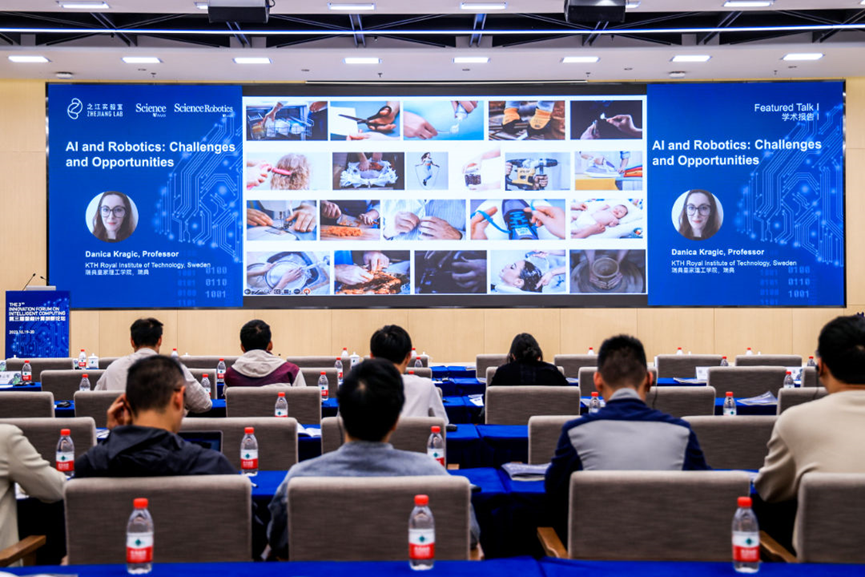
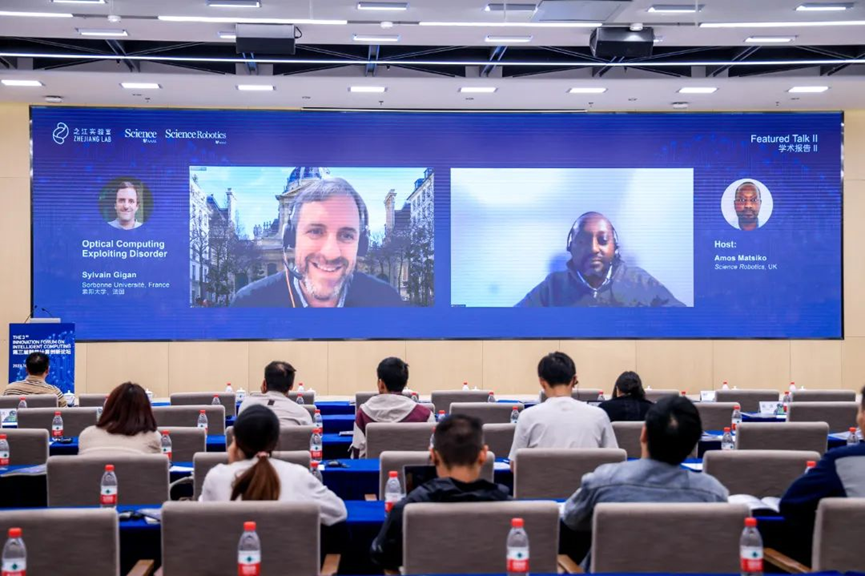
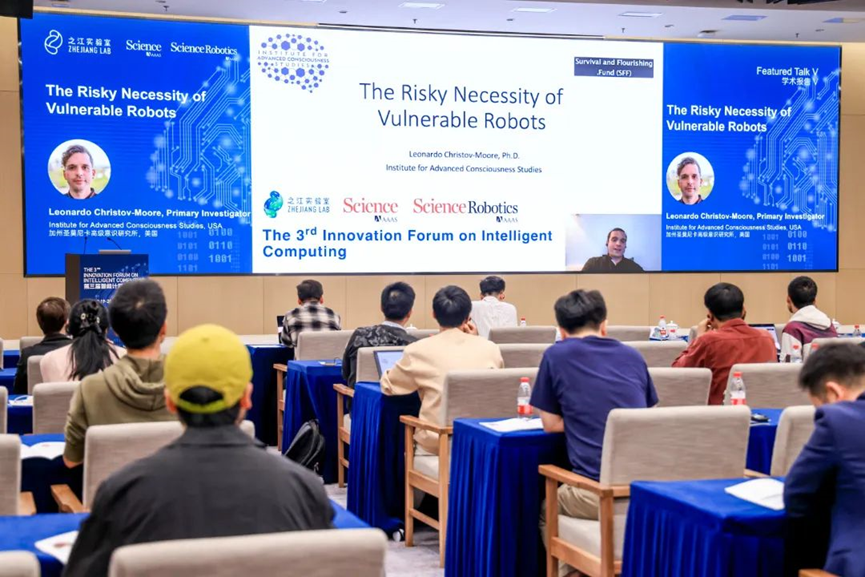
During the two-day forum, Prof. Danica Kragic at KTH Royal Institute of Technology, Sweden, Prof. Sylvain Gigan at Sorbonne Université, France, Prof. PENG Xin at Fudan University, Associate Prof. Cynthia Matuszek at the University of Maryland, Baltimore County, USA, Leonardo Christov-Moore, a PI at the Institute for Advanced Consciousness Studies in Santa Monica, California, Tenured Associate Prof. GAO Fei at Zhejiang University, Nicolas Heess, a research scientist at Google DeepMind, as well as WEI Yixiong, CHEN Hongyang and MA Dacheng, young scholars from Zhejiang Lab shared their recent research advances in AI and computing technologies. During the panel discussion, JIANG Tianzi, LIN Feng and WU Xindong, senior research experts at Zhejiang Lab, YU Xiao, a research expert at Zhejiang Lab, and Prof. Aydogan Ozcan at UCLA, conducted in-depth exchanges on technologies such as digital twin brain, knowledge graph and ferroelectric chip. Amos Matsiko, Editor for Science Robotics, and ZHANG Honggang, Chief Managing Editor of Intelligent Computing, gave two professional lectures from an editor's perspective.
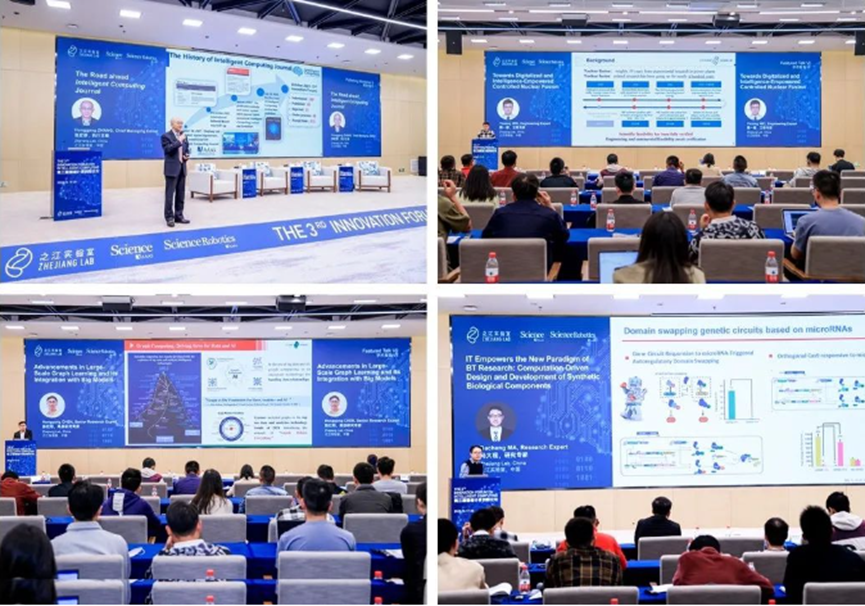
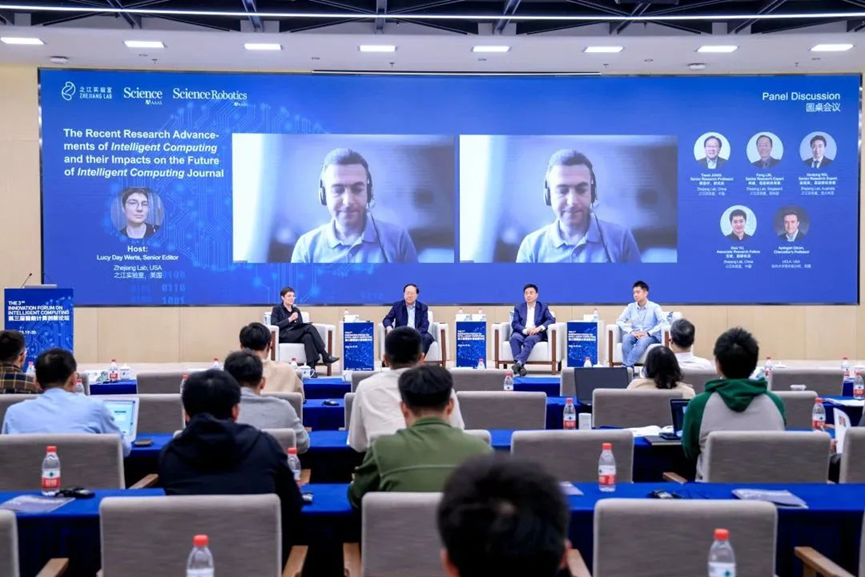
This is the third consecutive year that Zhejiang Lab has held the Innovation Forum on Intelligent Computing, a platform dedicated to exploring global forefront topics and developments in intelligent computing. "Scientific and technological development has once again put computing at the center of innovation, and the combination of computing, data and model has become a new driving force for innovation." ZHAO Zhifeng, Chief Engineer of Zhejiang Lab, said that in this context, Zhejiang Lab has always been committed to empowering scientific discoveries with intelligent computing, and integrating high-performance computing, dense datasets and foundation models to build a powerful engine for scientific research. In the future, Zhejiang Lab will practice open science and build itself into an international platform for scientific exchange to uncover more avenues to empower innovations with intelligent computing.











